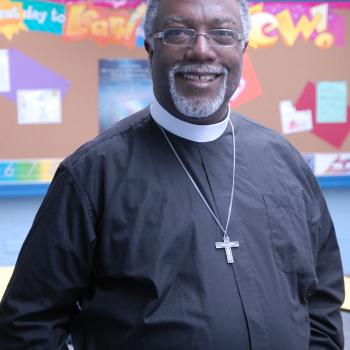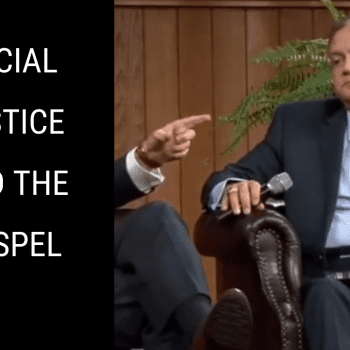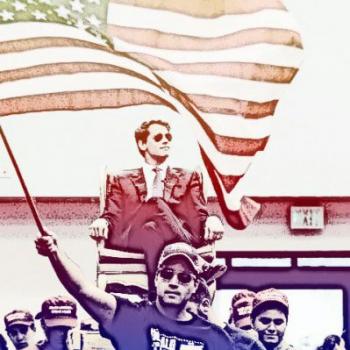I am not one to generally pay much attention to the goings-on of the Southern Baptist Convention, as I have never been involved in the Baptist world. However, as the largest conservative Protestant denomination in the U.S., decisions which arise out of the denomination are significant for the broader face of evangelicalism in the United States. I am, however, particularly interested in the ongoing discussion surrounding the alt-right and its relationship to evangelicalism.
I, personally, have been extremely critical of the so-called alt-right. I see this movement, at heart, as a post-Christian conservatism which I frankly find horrifying. Its leaders have generally viewed Christianity as a positive good only insofar as it has served to unite Western Europe, and promote white culture (whatever that means). At heart, the ideology of Spencer et. al. is fundamentally opposed to the concept of man as created in the imago Dei. There is a dislike of concepts of inherent God-created equality between races which are definitional to Christian anthropology. Beyond race issues, prominent alt-right proponents are supporters of the sexual revolution. This should be enough for any Christian organization to condemn such a movement.
What is particularly significant about the Southern Baptist Convention is that SBC leaders have often been heavily involved in American politics. Baptists in America do not have a great track record when it comes to issues of racial equality and slavery. It was common, at one time, for Baptists to believe that dark skin was a curse upon the black race as descended from Ham. Because of such issues, and in light of the growing white nationalism of the alt-right, the SBC proposed a resolution to condemn the alt-right as a movement. After some edits to the original proposal, this resolution passed.
There are a couple of points which I think are especially significant in the passing of this resolution. First, the SBC confirms that racism is sinful, and that God has given equal value to people of all races. Second, it is acknowledged that the truths of the gospel impact the structure of broader culture. Though it is true that statements about racial equality in Scripture relate to one’s standing coram Deo, there certainly are coram mundo implications to such realities. Paul recognized in Galatians that ethnic divisions of fellowship are harmful to the church, and result in an inherent denial of the gospel, in which people of all ethnicities are united in the Kingdom of God. These points are important, as sins which impact the culture, and thus the church, are to be called out. The church is not called to remain silent in relation to the evils of the culture.
I am still somewhat ambivalent, however, toward the use of the term “alt-right” in the resolution. The term itself is so vague that no one can really seem to pin down what it means. Nearly every time I have criticized the alt-right for anything one of its leaders has done, I am confronted by someone who says, “but that’s not really the alt-right.” To cite anything as being definitional of the movement is somehow seen as misrepresentation. In that way, I am not sure that anyone knows what they even mean when using the label. For some, it seems that anyone who voted for Donald Trump is “alt-right,” and for others, the term seems to identify only those who are openly racist. Even the one-time poster boy for the alt-right, Milo Yiannopoulos, has rejected any use of the term to identify himself.
What I fear then is that alt-right proponents will simply continue their campaign of claiming misrepresentation at every possible point, and then use this as evidence that the SBC has lied about the movement. This will mean, according to their usual narrative, that the Convention has been taken over by SJWs, and has been impacted by the liberal media, etc. I suppose, however, that no matter what this resolution stated, the victim mentality of the alt-right would continue.
Overall, I am thankful that this resolution has passed. Honestly, its a sad state that such issues even need to be addressed. One would think that anyone who calls for “peaceful ethnic cleansing” is clearly opposed to both the gospel and natural law.











